Presidential elections in the Maldives: Anti-India campaign, pro-China results?
While Mohamed Muizzu, largely seen as a pro-China candidate, emerged the winner in the Maldives' recent presidential elections, this may not mean that all is lost for India, says academic Rishi Gupta.
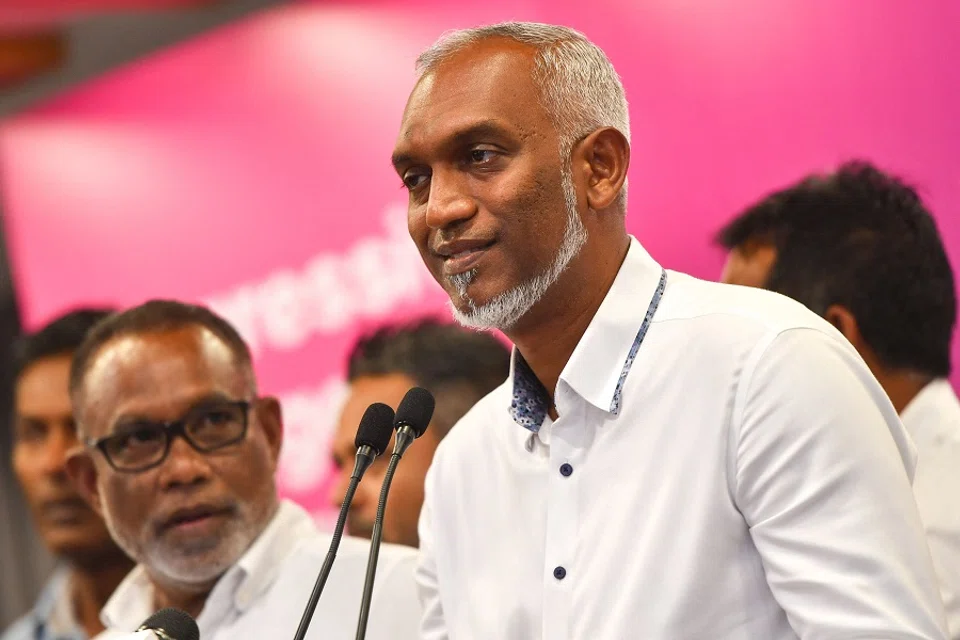
Maldives, strategically positioned in the central Indian Ocean, held its presidential elections on 30 September. Mohamed Muizzu, the joint candidate of the Progressive Party of Maldives (PPM)-People's National Congress (PNC), won with 54% of the votes against incumbent President Ibrahim Mohamed Solih. President-elect Mohamed Muizzu benefited from dissatisfaction with the ruling government, primarily due to the slowing tourism economy during Covid-19. But what really helped his candidacy was his pro-China stance against the prevailing "India First" policy.
With the Maldivians divided between India and China, the president-elect has committed to forging stronger ties with China, a stance which has been part of the political manifesto of the PPM. Mohamed Muizzu led a strong "India Out" campaign incorporating ultra-nationalist rhetoric - premised on asking India to withdraw 75 Indian military personnel stationed in the Maldives who have been assisting the Maldivian security forces in operating the two helicopters and the Dornier aircraft gifted by India to Male in 2013 and 2020.
Former President Nasheed played spoiler
The other crucial factor in Mohamed Muizzu's victory was the breakup of the Maldives Democratic Party (MDP). Former President Mohammad Nasheed separated from the MDP and refused to support his party colleague Mohammad Solih for the second term. In the 2019 presidential elections, Nasheed had supported Solih and played an important role in his victory. After becoming president, Solih appointed Nasheed as his adviser and speaker of the Maldivian parliament.
India has a natural geographical and people-to-people advantage in the Maldives.
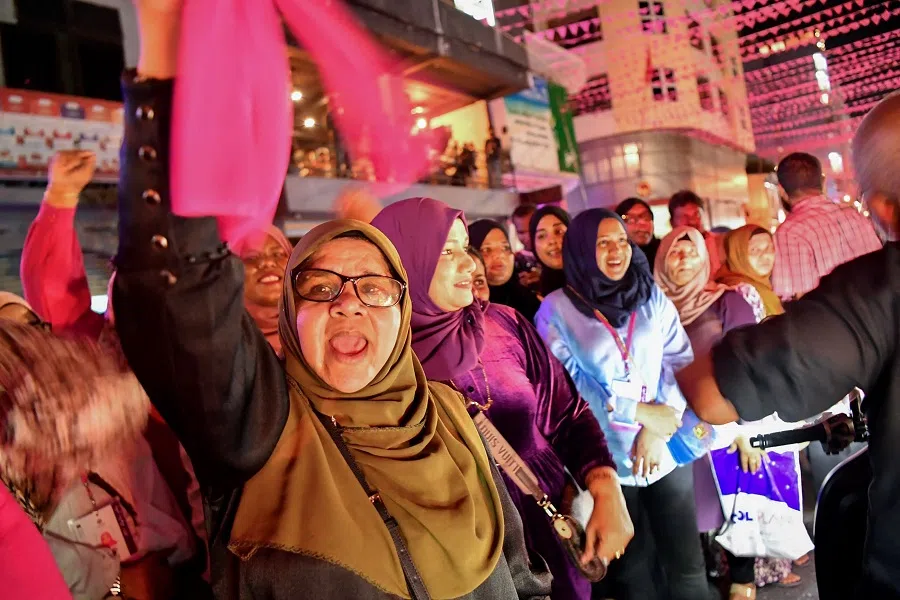
After Nasheed broke off from the MDP, he formed the Democrats Party (DP) and fielded Ilyas Labib as the presidential candidate, who failed to garner double-digit results. Had Nasheed, a pro-India politician, not broken up with the MDP and supported his colleague in the party, President Solih would have gotten a second term, considering Nasheed has a small but dedicated electorate in the Maldives.
Geopolitics of the elections
New Delhi and Beijing are both vying for a significant military and overall strategic presence in the Indian Ocean as it is a major gateway for world trade consisting of critical sea lanes of communication. A strong presence in the Maldives for India and China would mean they have an advantageous position over each other. Meanwhile, India has a natural geographical and people-to-people advantage in the Maldives. In contrast, as a distant neighbour, China has to rely solely on the Maldivian political leadership to support Chinese endeavours in the island nation.
For India, the Maldives, located just 70 nautical miles from Minicoy on India's west coast and 300 nautical miles from India's West coast, holds a vital strategic position. This geographic proximity makes the Maldives of immense strategic significance to India. At the same time, India has been involved in developmental projects in the Maldives, thereby increasing its goodwill among the Maldivian people towards India.
... growing political discontent and "India Out" campaigns exhibit a divided Maldives on India.
Due to geographical proximity, India has been the first responder to any crisis in the Maldives, be it the freshwater crisis in 2014 or supplying medicines and vaccines during the Covid-19 pandemic. So far, India has capitalised on its geographical and cultural proximity with the Maldives, but growing political discontent and "India Out" campaigns exhibit a divided Maldives on India.
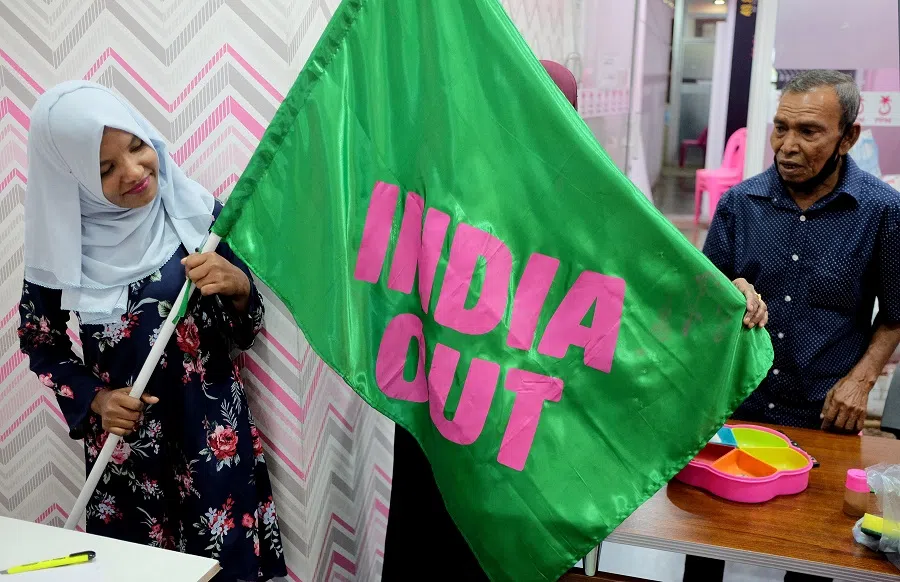
In addition to India looking to protect its security interests in the Indian Ocean, there is a collective interest of the Quad countries of the US, India, Japan and Australia to maintain ties with the Maldives and be vigilant of Chinese manoeuvrings in the Maldives. This is visible from important visits to the Maldives, including that by then US Secretary of State Michael R. Pompeo in October 2020, Indian Defence Minister Rajnath Singh in May 2023, and Japanese Foreign Minister Hayashi Yoshimasa in August 2023. While their talks have largely revolved around supporting the Maldives in its development, the climate change issue and education, China is undeniably the main concern for the Quad countries.
Is China back?
Chinese President Xi Jinping, in his congratulatory message to President-elect Mohamed Muizzu, highlighted that China "attaches great importance to the development of China-Maldives relations, and is ready to work with President-elect Dr. Muizzu to carry forward traditional friendship and deepen practical cooperation so as to promote China-Maldives future-oriented all-round friendly and cooperative partnership with more progress". A quick media response followed by an official response indicated a euphoria in China.
President-elect Muizzu met with the Chinese ambassador, Wang Lixin, assuring full cooperation with the Belt and Road Initiative (BRI) and requesting China's support in fulfilling their campaign promises. Mentioning campaign promises to the Chinese ambassador was an odd choice by the President-elect. Still, it made more sense, considering improving ties with China was top on his election agenda, and the electorate voted for it.
Chinese aid has raised concerns among the island people regarding potential debt dependence and security implications.
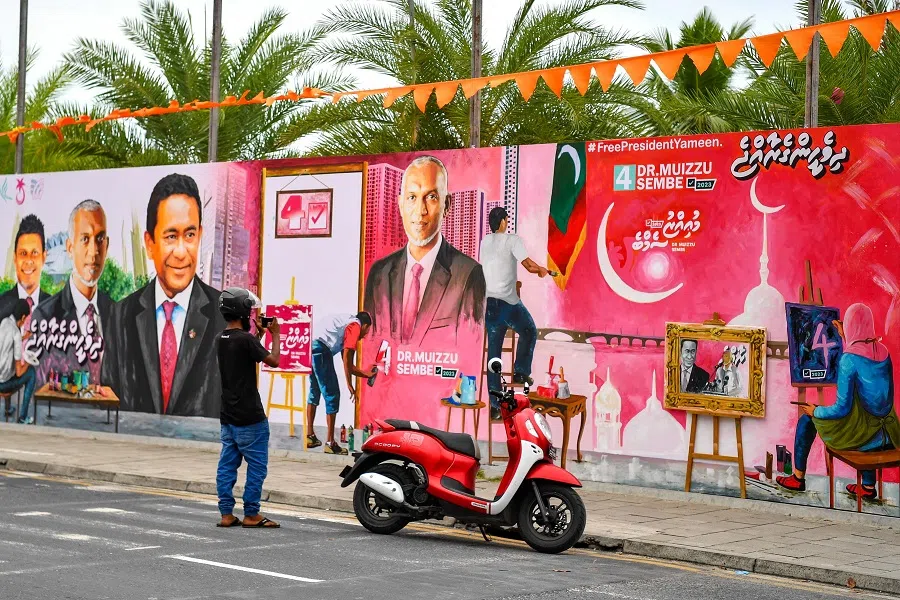
While Muizzu promises a pro-China outlook, Beijing may still face a backlash in the island country. In recent years, Chinese aid has raised concerns among the island people regarding potential debt dependence and security implications. Reports indicate that the Maldives owes US$935 million in sovereign guarantees to Chinese companies and another US$600 million directly to China. It will be interesting to see how China would like it settled. However, there is no doubt that China sees the Maldives as an essential component of its ambitious BRI and aims to create a network of infrastructure and trade routes connecting China with different parts of the world, thereby increasing its economic and geopolitical influence.
Implications for India
Prime Minister Modi was among the first few world leaders to congratulate the newly elected President. Modi added, "India remains committed to strengthening the time-tested India-Maldives bilateral relationship and enhancing our overall cooperation in the Indian Ocean Region." Earlier this year, External Affairs Minister S Jaishankar praised bilateral relations and reviewed various projects during his visit to Maldives.
Meanwhile, in line with his poll promises, President-elect Muizzu had a politically charged meeting with the Indian ambassador to the Maldives, where he reportedly conveyed to the ambassador that he hoped to revive Maldives-India relations based on the principles of respect for sovereignty, which was an indirect inference to the presence of Indian security personnel in the Maldives.
... India's role in the Maldives will be crucial for other Quad members who rely on New Delhi's strategic inputs, especially in keeping a close eye on the Chinese activities in the Indian Ocean.
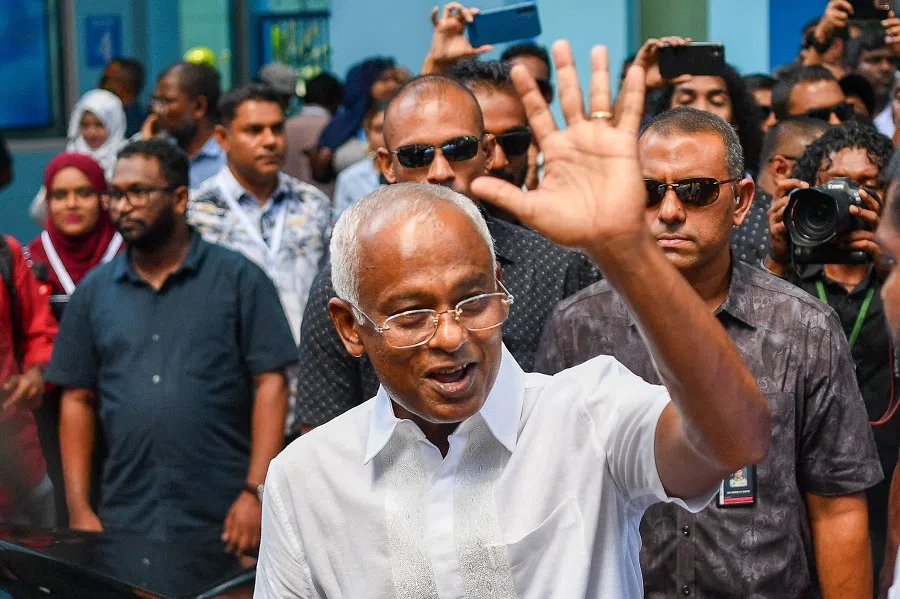
There had been no significant response from New Delhi to Muizzu's criticism of India during his election campaign and to his victory speech alleging that President Solih's administration had endangered the independence and sovereignty of Maldives by seeking India's approval for important decisions. Yet the Indian security and foreign policy establishment see worrying signs. New Delhi is keeping a close eye on developments in the Maldives, and in the absence of a friendly government, it will have to rely on the opposition to some degree.
Way forward
Amidst the changing political and geopolitical situation in the Maldives, India's influence in the Maldives is expected to undergo a transformation from the dynamics seen during Solih's presidency. But a policy change towards India does not mean a complete reversal of engagement but rather a conveniently pro-China stance. At the same time, India will have to review its policies and engagement with the Maldives.
Also, India's role in the Maldives will be crucial for other Quad members who rely on New Delhi's strategic inputs, especially in keeping a close eye on the Chinese activities in the Indian Ocean. Conversely, Beijing will not retain the same level of influence it enjoyed during Abdulla Yameen's presidential term from 2013 to 2018 because the Maldives would want at least some degree of Indian leverage to remain to balance China.





